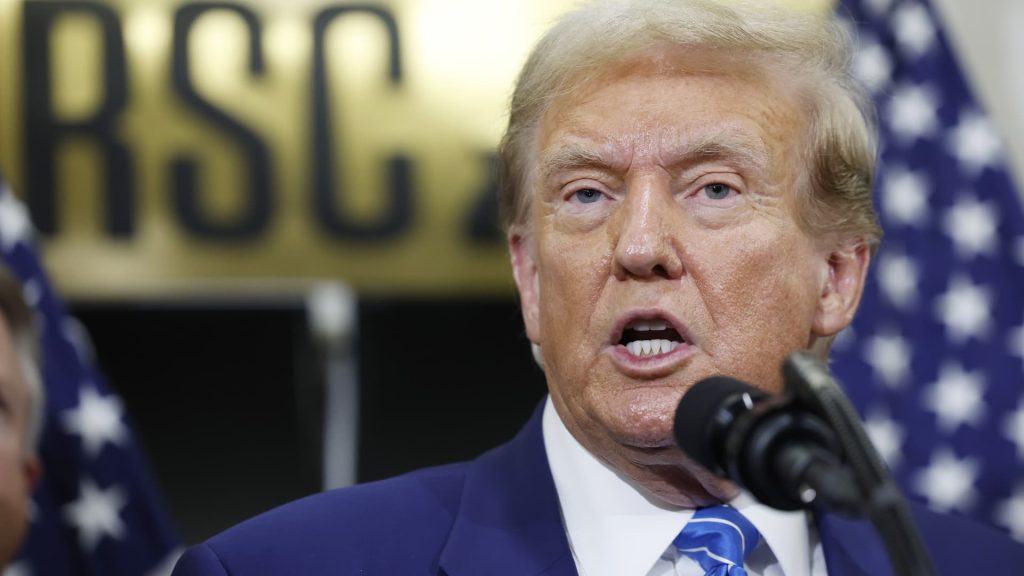Former President Donald Trump met with over 80 CEOs in Washington with a clear message: if re-elected, he plans to implement tax cuts and reduce business regulations. He announced his intention to cut taxes, including income taxes, and bring back economic policies from his first term. Trump also proposed lowering the federal corporate tax rate from 21% to 20% and eliminating taxes on worker tips, which received positive reactions from the CEOs in attendance. The meeting, which included high-profile executives such as Tim Cook, Jamie Dimon, Jane Fraser, and Brian Moynihan, was part of the Business Roundtable’s quarterly gathering.
During the meeting, Trump emphasized his commitment to providing more of the same in the next four years if elected. This message was seen as an effort to mend relations with CEOs who had distanced themselves from the former president after incidents such as the disbanding of business advisory groups in 2017 and Trump’s response to the riots on January 6, 2021. He criticized President Joe Biden, stating that the country needs a leader who is at the top of their game, implying that he doesn’t believe Biden meets that standard. Trump’s remarks were met with mixed reactions, with some attendees declining to comment on the meeting.
In addition to discussing tax cuts and economic policies, Trump also spoke to House Republicans earlier in the day about implementing an “all tariff policy” that could potentially eliminate the need for income tax. This proposal aligns with his previous trade policies and protectionist approach to international trade. While some executives welcomed Trump’s plans, others remained cautious, given their past experiences with the former president’s policies and statements. Despite this, the ongoing engagement between Trump and the business community indicates a continued interest in shaping economic policy and fostering a stronger relationship between government and private sector leaders.
The meeting with CEOs allowed Trump to outline his vision for economic recovery and job creation through tax cuts and reduced regulations. By promising more of the same policies from his first term, Trump aimed to secure support from key industry leaders and corporations. The proposal to lower the corporate tax rate and eliminate taxes on worker tips could incentivize businesses and workers while potentially facing scrutiny from those concerned about revenue impacts and fairness in the tax code. The response from attendees varied, with some expressing enthusiasm for Trump’s plans and others remaining cautious about his potential return to office.
Trump’s engagement with the business community reflects his ongoing efforts to shape economic policy and gain support from key stakeholders. By advocating for tax cuts and deregulation, he presented a familiar message to CEOs and executives who may benefit from such policies. The meeting also highlighted tensions between Trump and some members of the business community, stemming from past incidents and statements that have strained relations. Moving forward, the outcome of the meeting and Trump’s proposals may impact the support he receives from the business community and influence the economic policies of his potential second term in office.















